Organic garden: basics of bio-farming |
Bio-farming is actually much easier and simpler than you might think. By following these simple tips and applying natural chemical substitutes and organic garden fertilizers, you can make your garden not only healthier, but greener than ever before! So where to start organic gardening and horticulture.
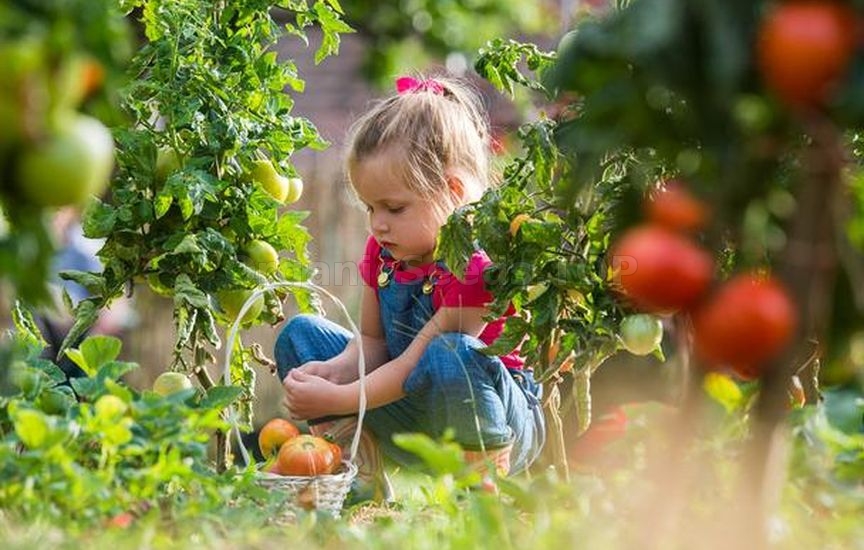 For some, the very statement about the inorganic nature of plants will seem strange. But if we recall the amount of chemical fertilizers, growth stimulants, fungicides and herbicides that we use annually in our gardens and gardens, doubts about the absolute environmental friendliness of the resulting crop will be justified. The choice in favor of bio-farming and organic gardening will bring many benefits to everyone who cares not only about their health, but also about protecting the environment - saving space, time and money are just some of them. Simple natural growing tips and an affordable alternative to chemicals will help you start the spring season without chemicals. Prepare your compost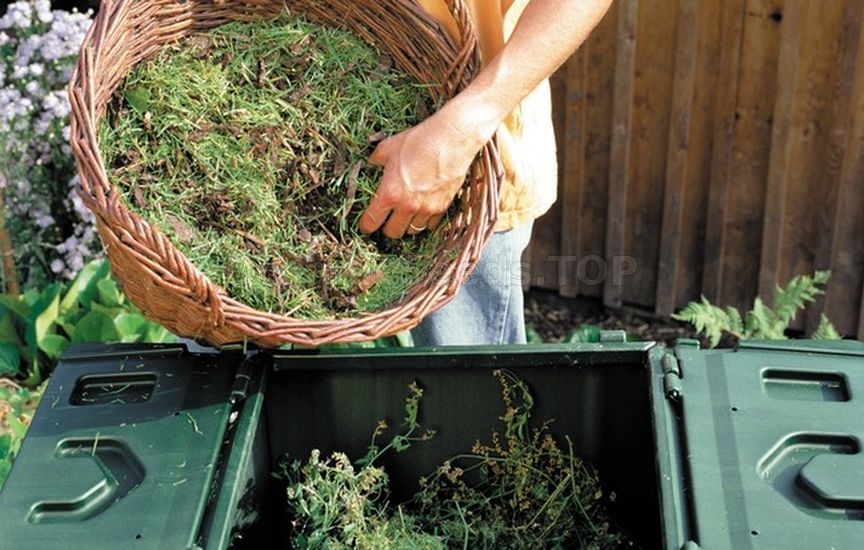 Making your own compost is one of the easiest, cheapest and most convenient ways to grow organic gardening and horticulture. Food waste is part of our daily routine, but you can recycle vegetable peels, banana skins, and coffee grounds to create a nutrient-rich organic fertilizer that makes a great addition to your garden. 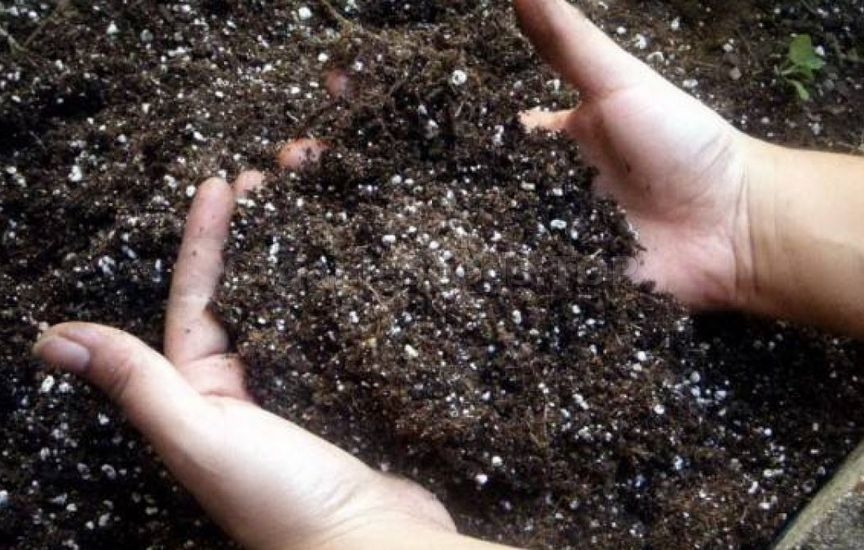 To do this, you can get by with the formation of a compost heap in the backyard, where you will simply “send” organic waste, waiting for it to decay and turn into “black gold”. But if you prefer a more conservative and aesthetic style of farming, there is nothing stopping you from purchasing a special compost bin - various sizes, shapes and colors are possible. For more information on making your own compost, you can read our complete guide. Make a worm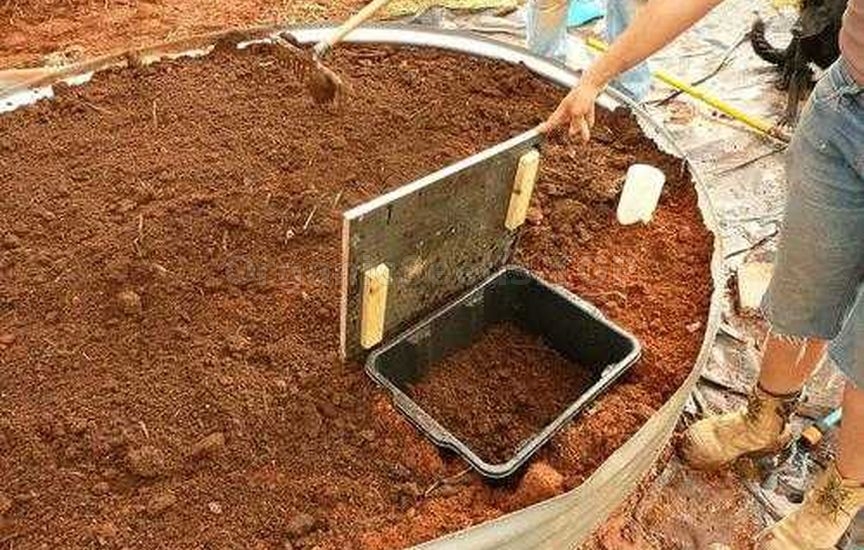 It will take a long time for the compost to rot. If you have a need for a faster production time of nutritious natural fertilizer for plants, arrange a vermicompost for biohumus. Earthworms or dung worms are the most active living organisms, capable of absorbing organic waste, turning it into a unique nutritional and easily digestible liquid fertilizer that will benefit all plants in your garden. Considering that worms do not need special conditions of detention and live almost everywhere underground, a small garden farm for growing them will be a simple, affordable and environmentally friendly solution for the continuous supply of natural top dressing to your garden and vegetable garden. Dung worms (Eisenia fetida) are best suited for harvesting vermicompost for agricultural purposes. They can be purchased at gardening centers or specialized stores. However, these worms usually live in last year's compost or half-rotted manure, so you can dig them up on your site. 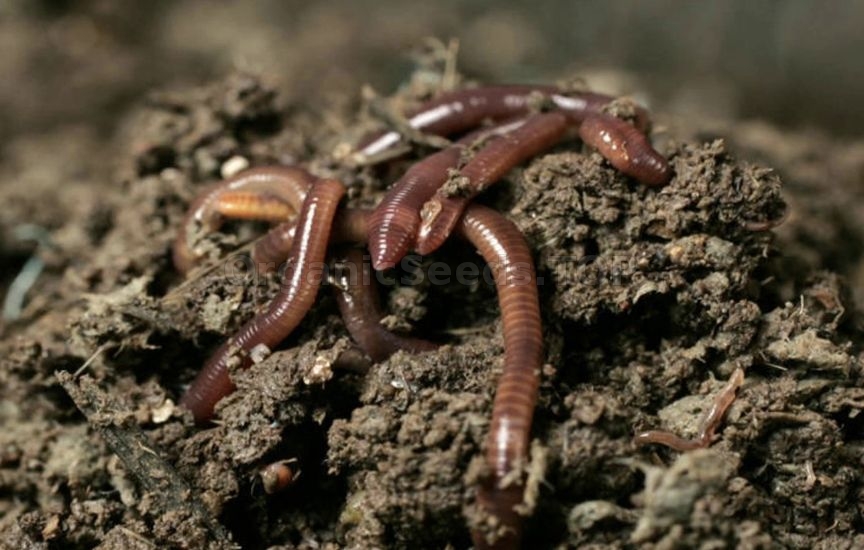 Dung worms (Eisenia fetida) are dark brown in color with alternating dark and light transverse stripes. They release a bright yellow odorous liquid when handled. By the way, small worm houses will also be the best solution for those who are fond of urban gardening - a small pile with compost in which worms live can even be placed on a balcony, where there is certainly no place for a compost heap. Control weeds with plants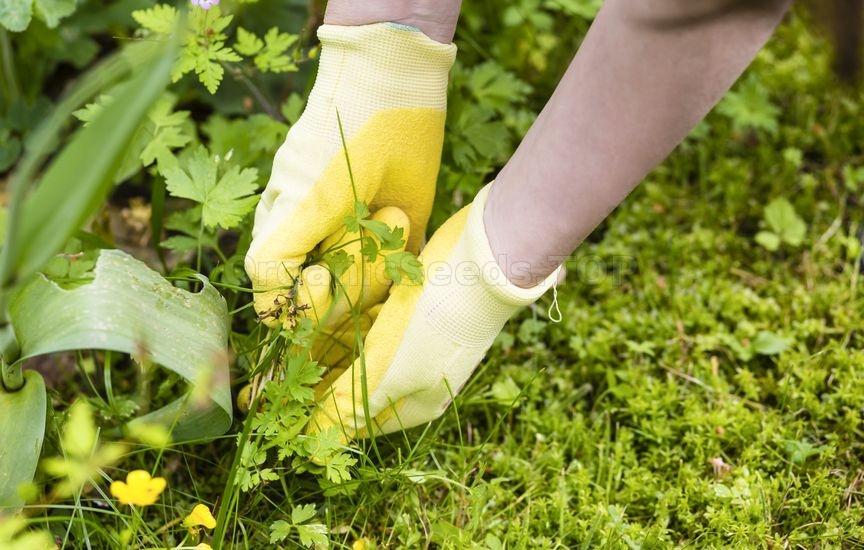 The use of herbicides, known for quick results in the shortest possible time, is certainly very tempting if your garden beds are attacked by intrusive uninvited guests. However, using sustainable weed control methods will not only be a great experience in the practice of bio-farming, but will also provide you with a completely healthy crop as a result. There are several ways to get rid of weeds without the use of chemicals. First of all, this is weeding the beds - manually or using special garden tools. 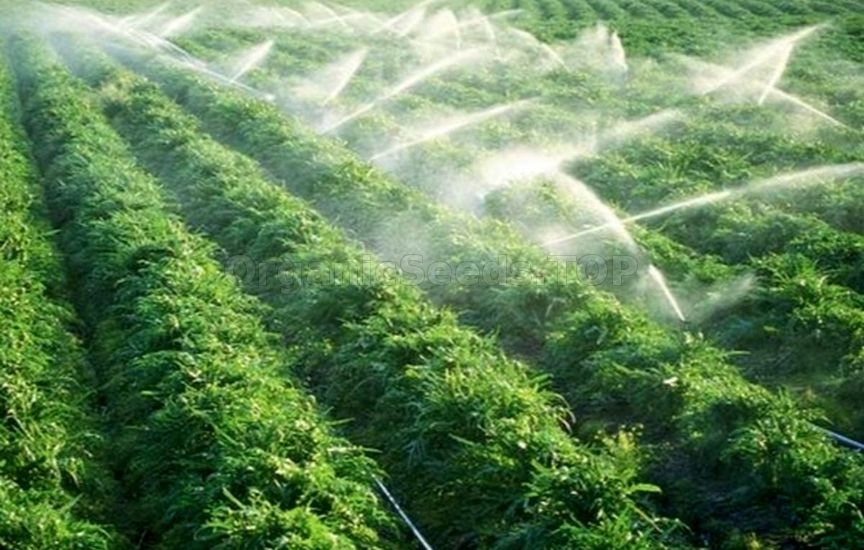 Weeding is much easier after heavy rains or watering, when the soil is loose and soft, allowing plants to be pulled up by the roots with minimal effort. You can also try using mulch, which is a long-term answer to the spread of resistant weeds, protecting the health of your soil by preventing evaporation of moisture while depriving weeds of light, without which their growth is significantly stunted. For more information on how to deal with weeds without chemicals, read more here. Use natural insecticides Even the most hardened conservationists will agree that the loss of a tomato or eggplant crop for the third year in a row due to an invasion of pests will make anyone impatient and set up aggressively. What solution can bio-farming offer in this case? Some plants are able to protect your beds from insects that threaten vegetable crops. So, green onions are effective in the fight against carrot flies and aphids, and borage (borage or borage) will protect your tomatoes and cabbage. Planted next to strawberries, borage will also attract bees, which will increase the pollination of your berry and ensure a higher yield. If there is not enough space in your garden or garden plot to plant protector plants, you can prepare various natural-based ready-made preparations at home that can compete in effectiveness with chemical solutions. Recipe for a natural insect repellant:
Grind 10 heads of garlic, cover with cold water and let it brew for a day. Then add a few tablespoons of vegetable oil and an aqueous solution of natural laundry soap to the infusion. Before use, dilute the finished preparation with water 1: 3 and spray the plants with it from a spray bottle. 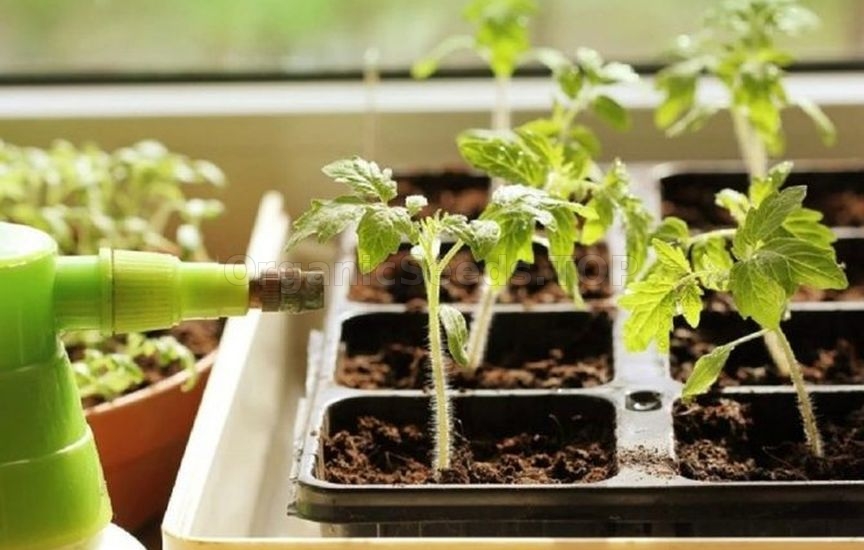 In addition, there is already a fairly large range of organic insecticides on sale, which are made on a plant basis without the use of chemical compounds. Consult your nearest garden center or specialist shop on this matter. With these simple and effective ways, you can practice organic gardening and horticulture with ease. There are many eco-friendly and nature-friendly methods of bio-farming, which we will talk about in this section. You only need to determine which of them are most suitable for you and your personal plot. |
|
|
